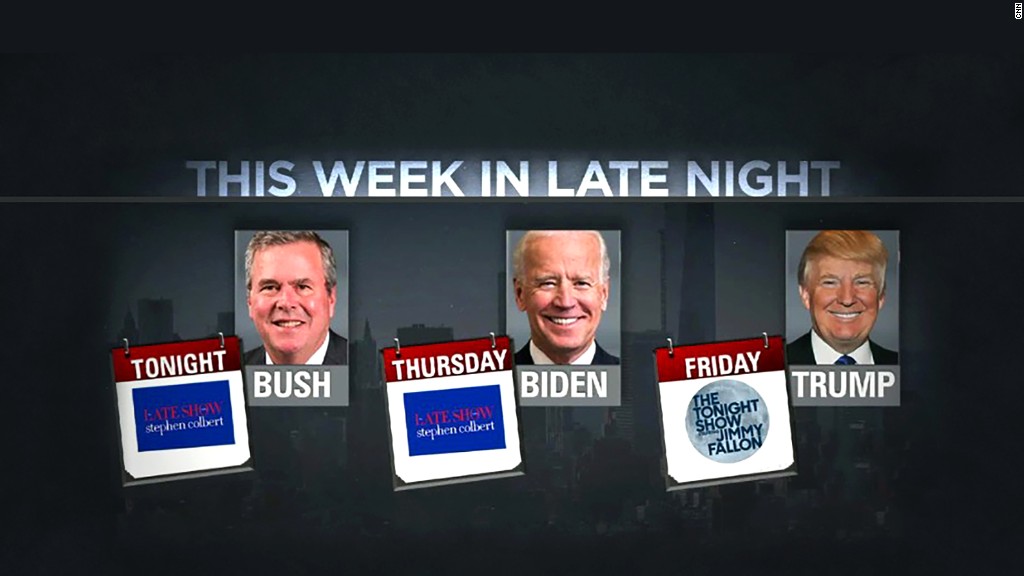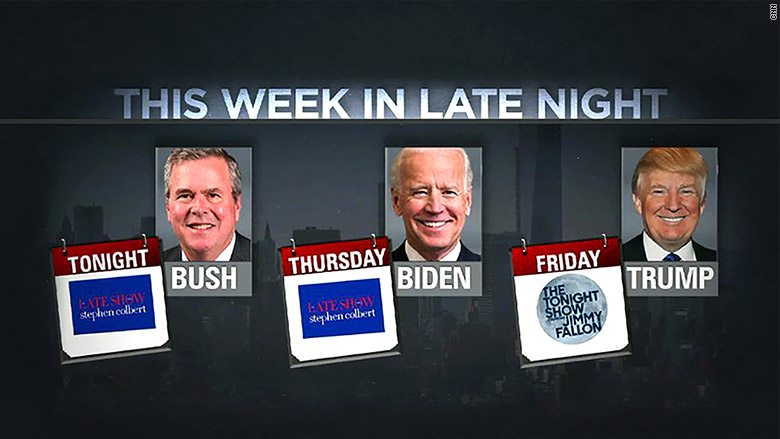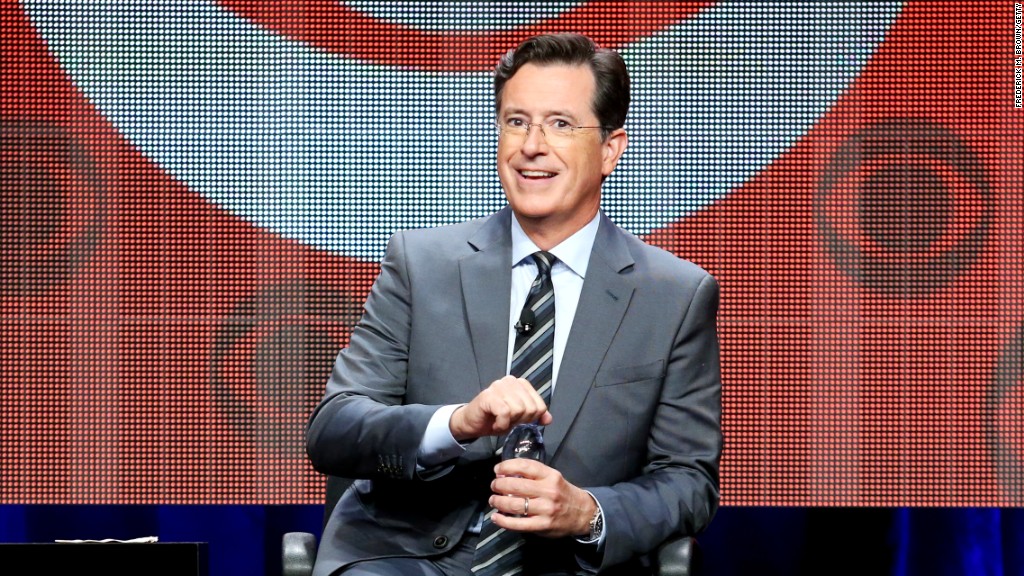
When Stephen Colbert's producers started to plot his premiere episode of "The Late Show," they wanted a top-tier presidential candidate. But Hillary Clinton's campaign turned down the show's offer.
The stated reason: Clinton was already in talks with Colbert's late-night rival Jimmy Fallon.
This peek at the booking battle shows the strong ties between politicians and the late-night comedians who poke fun at them.
Related: fans are lining up for Colbert's 5 p.m. taping
In 2009, President Obama became the first sitting president to appear on a late-night talk show. Since then he's been on "The Tonight Show," "The Late Show," "Jimmy Kimmel Live," and "The Daily Show" numerous times.
The next president is almost certain to continue the tradition. Hopefuls are already using the late-night couch to humanize themselves: Chris Christie spent time with Fallon last month, Donald Trump will have a turn with Fallon this Friday, and Bernie Sanders will sit down with Colbert next week.
Related: the real Stephen Colbert is about to stand up
As for Colbert's much-anticipated premiere Tuesday night, his political guest will be Jeb Bush.
"We want to run a campaign that introduces Jeb as a person to voters," Bush campaign communications director Tim Miller said. "That's why we are releasing an e-book based off his personal emails, and doing behind the scenes Jeb 'no filter' videos -- and the premiere of the new 'Late Show' is a once-in-a-campaign opportunity to do that."
The show's pursuit of Clinton for the premiere was described by two sources who insisted on anonymity. Clinton opted for a sit-down with Fallon instead; NBC said it will air on September 16.
"In some ways, late night is the new Sunday morning. It is a must for a candidate," said Dan Pfeiffer, a CNN contributor and Obama's former communications director.
He said forums like the "Late Show" are "a chance to show a different, more human side and break out of the horse race tit-for-tat that dominates so much of the traditional campaign coverage."
That said, "there is risk involved -- a bad or awkward moment can go viral and it is a mistake to assume that these will be substance-free interviews."
Pfeiffer recalled Colbert's predecessor David Letterman once transforming an Obama appearance into a lengthy discussion about Afghanistan.
Colbert has indicated that he'll be having serious conversations on his iteration of "The Late Show," as well.
Vice President Joe Biden will be one of Colbert's guests on Thursday, stoking speculation that Biden might discuss his presidential aspirations.

"Biden is always good TV. And he's always a good talk show guest," comedian and radio host John Fugelsang told me on Sunday's "Reliable Sources." "I think whether he's running or not, it's good for him to make this appearance. And the show is lucky to have him."
There's a storied history of this kind of television campaigning. John McCain, for instance, signaled his plan to run for president to Letterman back in 2007.
Nowadays, it is becoming more and more common, not just in late-night, but in other entertainment forums as well.
Hillary Clinton is taping interviews with both ABC News anchor David Muir and celebrity talk show host Ellen DeGeneres on Tuesday.
And Senator Elizabeth Warren, whose recent meeting with Biden stirred speculation about a joint Democratic ticket, is on "The View" on Tuesday morning.
Related: inside the secret tests of Colbert's new show
On the talk show circuit, goal #1 is to "get a laugh," said Bill Carter, "and show some part of our personality that people maybe haven't before."
Carter, a CNN contributor and the author of two definitive books about late-night, said the Bush appearance on Colbert is particularly important. Colbert played a blowhard conservative pundit on Comedy Central for almost a decade, but he's retiring that character now.
By interviewing a prominent Republican on premiere night, "I think that's kind of a signal he's sending," that Colbert is no longer in character, Carter said on CNN's "New Day."
And for Bush, he said, it's a chance to "show some energy -- to counter the image that Trump is trying to throw at him."
Meanwhile, Clinton's appearance on Fallon next week could be seen as Democratic counter-programming -- because it's on the same night as the Republican presidential primary debate on CNN.



